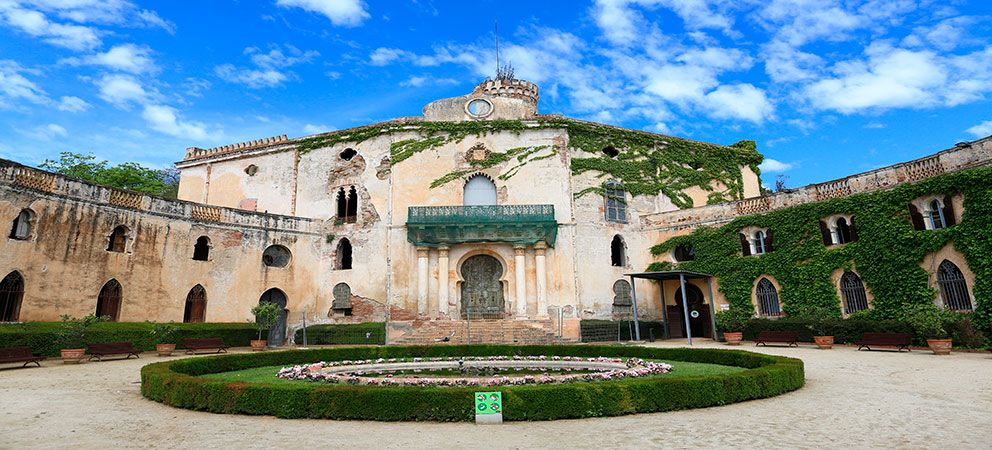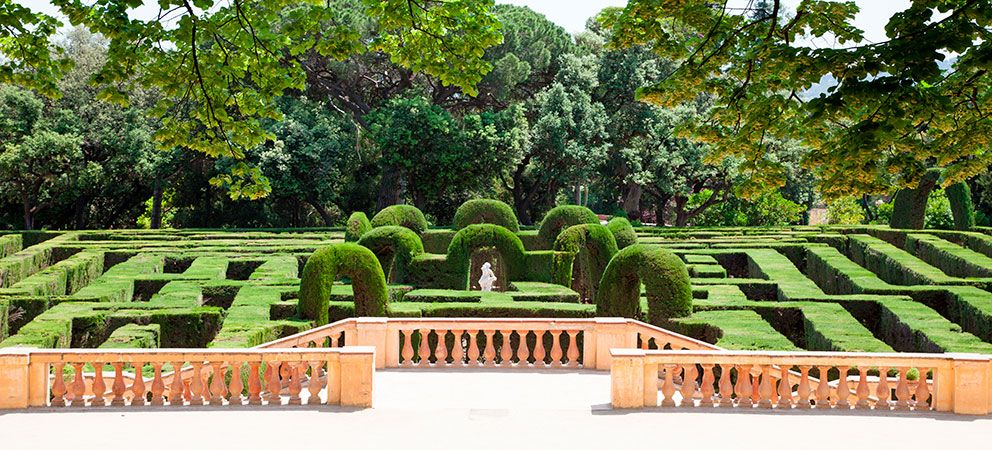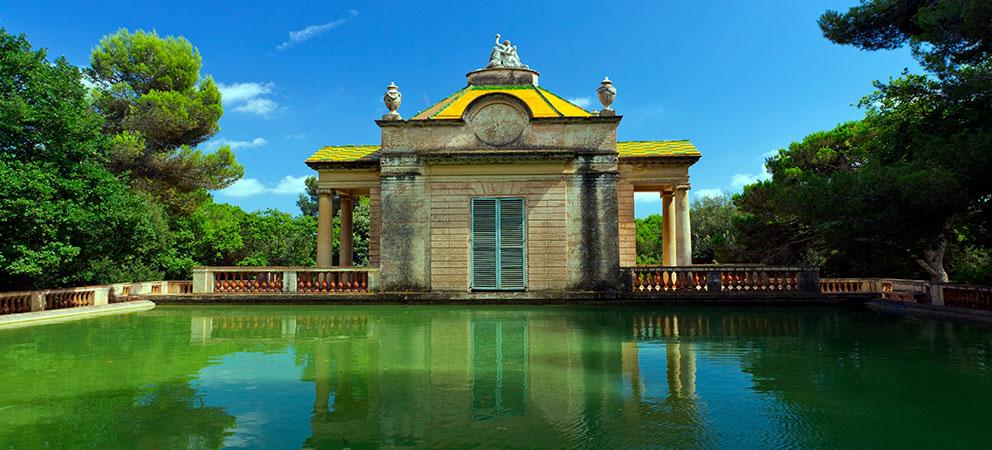© 2021 All rights reserved TRIP AIM
Made in ❤ TripAim
Cities are formed on their most emblematic places, and Barcelona owes a large part of its essence and charm to the Horta Labyrinth Park, the oldest in the Catalan capital, and a historic recreational place in the city.

Horta Labyrinth Par dates from the early nineteenth century, the space used for the creation of the park belonged to the estate of a wealthy Barcelona family. It was private property until 1968, when it came under the jurisdiction of the Barcelona City Council.
The park’s landscaping is extraordinary, and the labyrinthine path created with cypress trees gives the place its name. In the park you can also find a palace, ponds, various fountains, waterfalls and a small stream that give it a relaxing and idyllic atmosphere.
Another of the park’s great attractions is its interior museum, which exhibits various sculptures and works of art in the open air. It is an ideal space to rest and get away for a moment from the busy city life and to enjoy a day with the family.
Throughout its many years, the Horta Labyrinth Par has received the visit of millions of Barcelonians, travelers from other cities in Spain, international tourists, wealthy business families, kings, princes, aristocrats, rulers and ministers.

Like most of the great gardens of the big cities, the Horta Labyrinth Park was thought to be a natural oasis in the middle of a tireless metropolis. The park has a romantic and neoclassical style, typical of the palatial gardens of the time.
The Desvalls family, who owned the park, sold it to the city because of how expensive and demanding it was to maintain it in good condition. At that time, Barcelona was looking to recover and overcome the bad memories left by the war and economic difficulties, so the acceptance of the park by the public was extraordinary.
Due to the fact that the park’s spaces could not cope with the high demand of visitors, it had to be expanded and exclusive areas for family recreation were added. Likewise, numerous trees were planted, along with a great variety of flora and vegetation to give the park all the characteristics of a small natural paradise.
The Horta Labyrinth Park has appeared in various reports on the city of Barcelona, in tourist and artistic photographs, and was one of the filming locations for the film “The Fragance”

Due to the delicate nature of its surroundings, and the value of its historical and cultural heritage, the park is an Asset of Local Interest for the city of Barcelona. And to keep it in the best possible condition, the number of visitors who have daily access to the park has been limited.
The maximum number of people that can visit the 9.10 hectares of the park in a single day is 750. So if you want to visit the park, you will have to plan your visit well, especially if you will be there during high season.
However, the wait will be worth it as you can enjoy one of the most beautiful places in all of Barcelona, perhaps have a picnic at one of its tables, and rest and then continue to get to know the city.
The image is ready to be viewed in 360 degrees if the acronym VR appears in its lower right part. If not, you have to refresh the page until you see the acronym VR.
To view the image of the Horta Labyrinth in 360 degrees, you have to move the mouse or slide the image with your fingers if it is from your mobile.

From March 2025 the Labyrinth of Horta will be closed to the public for 12 months for restoration works. The Barcelona City Council intends to recover the space by planting more than 2,000 cypress trees, renewing the irrigation system and improving the pavement.
In addition, the existing sculptural structures and the access stairs will be restored. With all these actions the objective is to recover the landscape and historical aspect of 1.5 kilometers of the Horta Labyrinth.
Share it:
© 2021 All rights reserved TRIP AIM
Made in ❤ TripAim
This website uses cookies so that we can provide you with the best user experience possible. Cookie information is stored in your browser and performs functions such as recognising you when you return to our website and helping our team to understand which sections of the website you find most interesting and useful.
Strictly Necessary Cookie should be enabled at all times so that we can save your preferences for cookie settings.
If you disable this cookie, we will not be able to save your preferences. This means that every time you visit this website you will need to enable or disable cookies again.
This website uses Google Analytics to collect anonymous information such as the number of visitors to the site, and the most popular pages.
Keeping this cookie enabled helps us to improve our website.
Please enable Strictly Necessary Cookies first so that we can save your preferences!
More information about our Cookie Policy